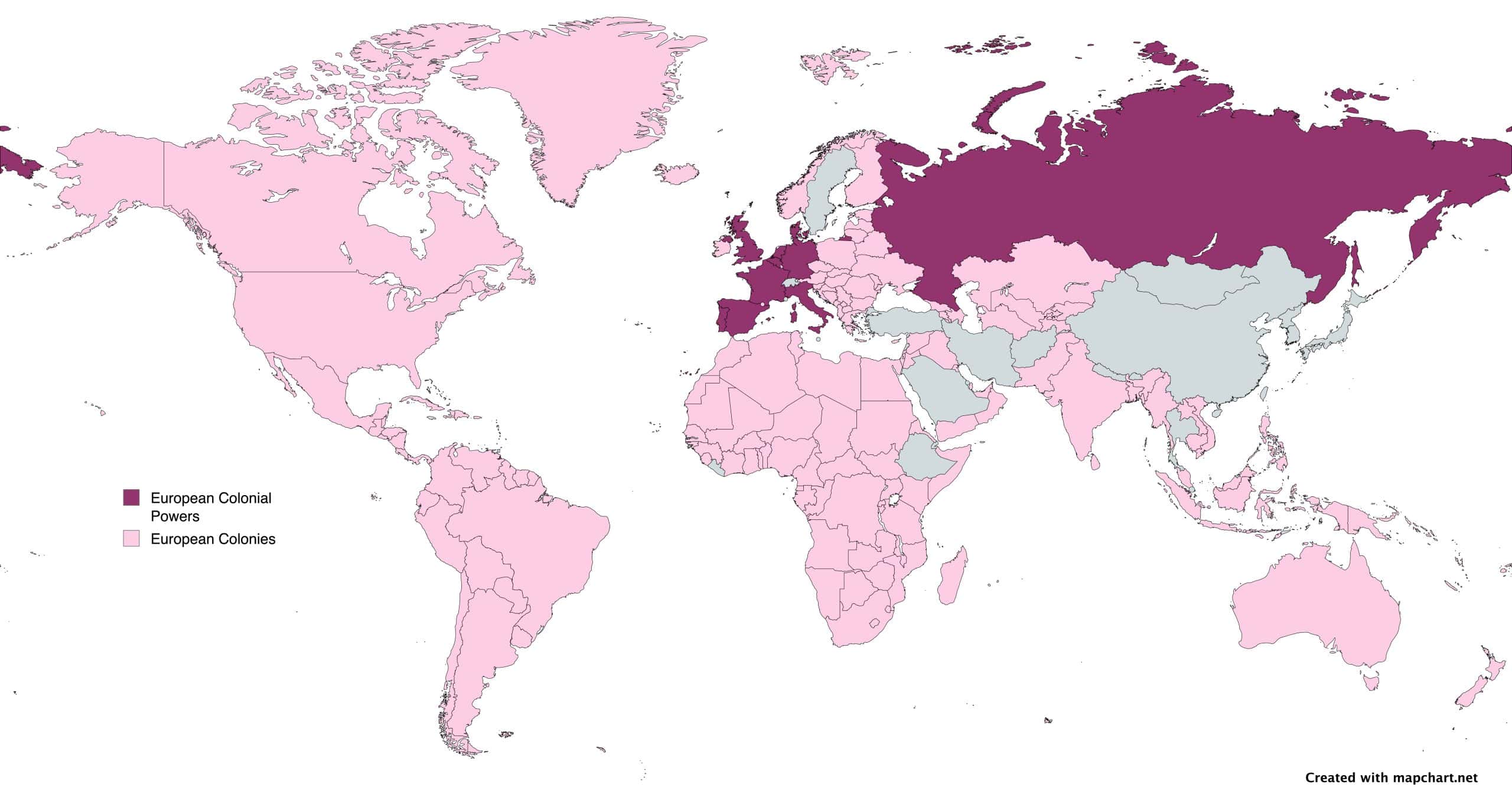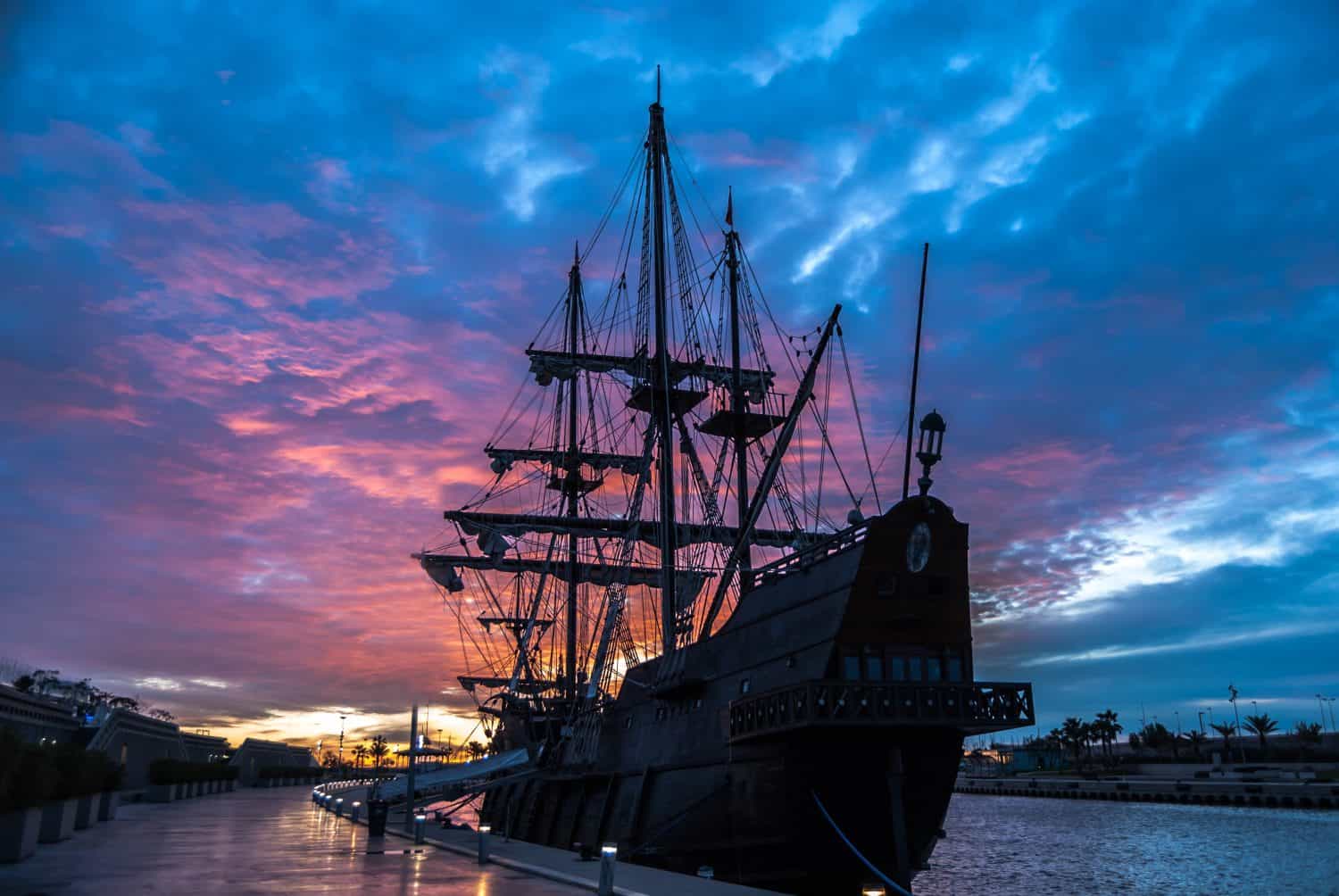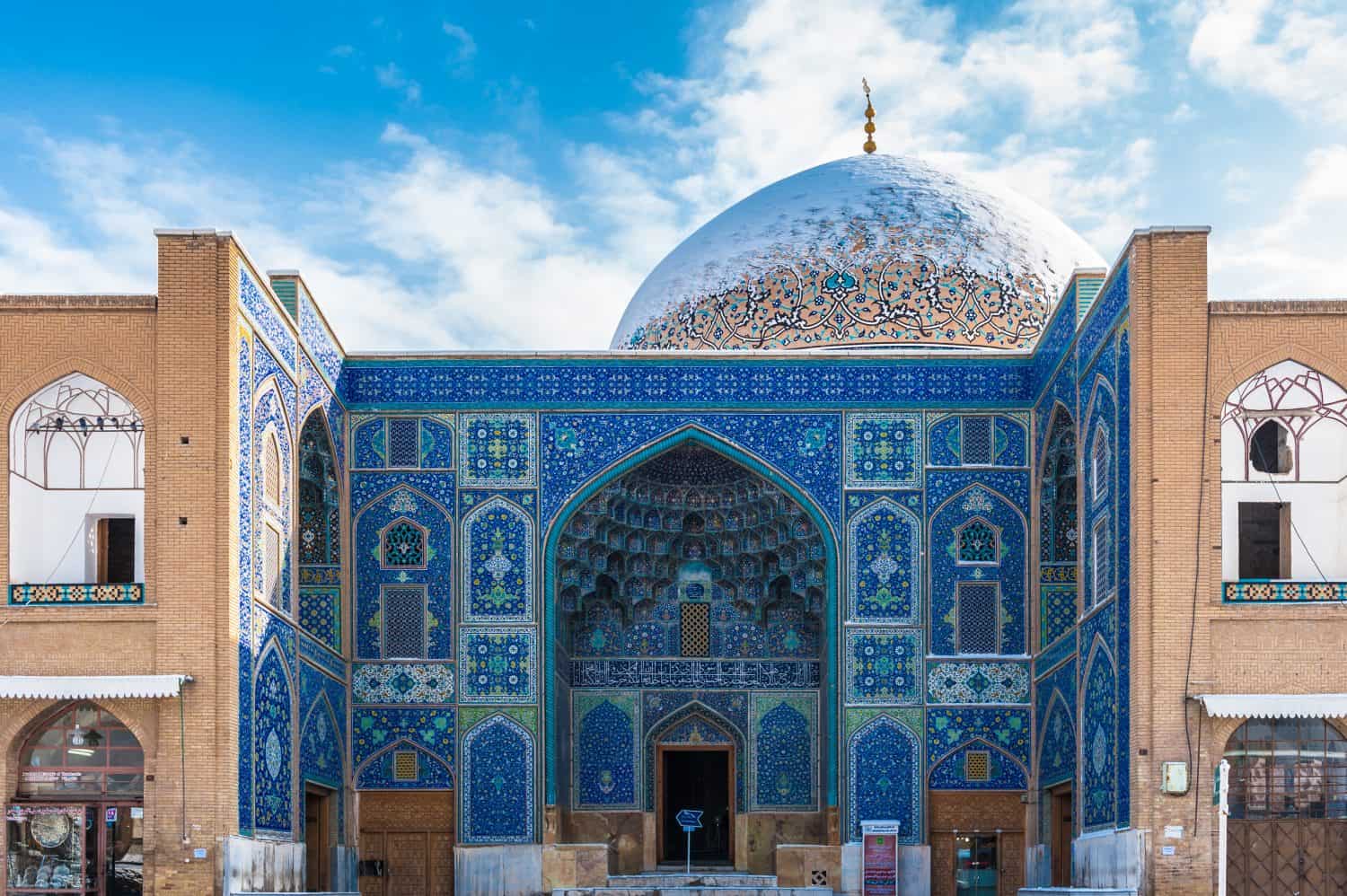Population and Social Characteristics
This Is What the World Might Look Like Today Without European Colonization

Published:

Between the 15th and 20th centuries, just 10 European countries colonized nearly the whole world. Colonization brought technological advancement, infrastructure, education, and medical care even to the most distant places. Unfortunately, along with that came the massive theft of natural resources, death by unintentionally introduced diseases or deliberate genocidal practices, and a lasting legacy of economic inequality and resentment. But what if that had never happened? What would the world be like today if Europeans had just . . . stayed home?
24/7 Wall St. Insights

10 European countries seized control of most of the world: Portugal, Spain, France, Britain, Belgium, Netherlands, Denmark, Germany, Italy, and Russia. Some of them also held other parts of Europe under their control at various times. In fact, Sweden and Switzerland are the only two European countries that were never conquered by one of the other 10.

In Africa, only Ethiopia and Liberia remained independent. Turkey, Saudi Arabia, Iran, and Afghanistan were the only Middle Eastern countries to escape colonization. Japan adopted western technology, so it was able to defend itself and claim colonies of its own, including Korea and, during World War II, Thailand. The Chinese remained mostly free, though they had to cede some ports like Hong Kong and Macau. The landlocked countries of Mongolia, Nepal, and Bhutan were too remote and resource-poor to be of interest to colonial powers.

These were some of the conditions that gave Europeans the means and motivation to conquer the world :
But what if Europeans never ventured beyond their shores out of fear of sea monsters or falling off the edge of a flat Earth? What might that world look like?

Here are 7 non-Western countries that might have become world colonizers if the Europeans had not.
It’s interesting to imagine that Europe itself might have been colonized by Africans and Ottoman Turks, and North America by the Japanese or Chinese, starting in Alaska and the Pacific Northwest.

Enormous non-western colonial empires are an intriguing thought experiment, but some of these countries may not have been an improvement on European colonizers. Most of them practiced slavery and many were intolerant of cultural minorities or religious or political dissenters in their countries. The Aztecs were particularly extreme, going to war against their neighbors to take tens of thousands of captives for human sacrifices to their gods.

Europeans shared many aspects of a common western civilization. They were influenced by Greco-Roman culture, had similar technology and military strategies, and were all Christian of one sort or another. Had they not colonized, other religions might be more influential and spread to more parts of the world.
Cultural diversity in many areas might have produced original and creative approaches to government, education, cultural products, values, and lifestyles. The flip side of all of this is that Europeans also developed over time traditions of democracy and individual rights that are now standard in most of the world and have brought unprecedented freedom to many people. Otherwise, more of today’s world might be governed as controlling autocracies or superstitious religious theocracies.

European countries created a lasting global economic imbalance in favor of themselves and the colonies they settled with millions of their own people, like the United States, Canada, and Australia. At the same time, they also built transportation and communication networks, introduced new crops and agricultural tools and methods, connected the world in global trade networks, and improved healthcare and education over time.
Without colonization, various regions of the world might be even more unequal, economically, than they are today, but there would be a different distribution of wealth and know-how. Who knows, Europe might still be a feudal agricultural continent while Incan South America could be doing astrophysics.
It could also be that the world’s economy would be more fragmented and less global. Countries would have continental trade networks dominated by a regional power but the volume of international trade and the variety of products might be more limited. This may be quite a bit better for the environment, but result in an overall lower standard of living in the world.

Technology may not have become as advanced in some areas as it did in fields like military and space technology. But some parts of the world might have become more advanced in areas that were not so motivated by conquest and economic exploitation, and if their people and resources had not been deported, killed, or diverted for the benefit of outsiders.
For example, some societies may have applied themselves more to kinds of development that were more environmentally sustainable out of their views of the sacredness of the Earth. Asian cultures influenced by philosophies that seek enlightenment through meditation might have devoted their science to understanding mental functioning. Potential discoveries in these areas may have been set back centuries by the interference of Europe in other regions’ natural paths of development.

The racial composition of the world’s population would be different than it is today. Europeans exported millions of their people to the less-populated Americas and Australia where they were able to multiply at a faster rate than had they remained crowded in Europe and subject to disease, famine, and warfare with no place for excess population to flee. In an uncolonized world, there would be, frankly, fewer Caucasians and more indigenous people on the other continents.
Slavery might very well have still existed, as it did in most cultures since antiquity, but would not necessarily be racially-based. Africans probably would not have been enslaved in the millions and transported to the Americas. And Latin America would not have developed the multiracial European/Native American/African ethnic fusion it has today. This might all have added up to less of a multiracial mixture in very diverse places like Brazil and the Caribbean and more regional cultural homogeneity.

From today’s perspective, colonialism as a whole was an atrocity that should have never happened. It brought some benefits in terms of technology, economic development, and building a global order with some widely-shared values that have formed the basis for international law and human rights standards. Had these things been achieved in a peaceful process of trade and cultural exchange, that would have obviously been more humane and respectful, and may have helped us avoid some of the world’s most difficult problems today.
Despite all this, the mixed legacy of colonialism shows us that human beings have a propensity for resilience, rising to the top again no matter how hard they are pushed down. And the specific mix of cultural and ethnic diversity we enjoy today in so many parts of the world is a beautiful and valuable thing, despite the often tragic historical circumstances that created it.
After two decades of reviewing financial products I haven’t seen anything like this. Credit card companies are at war, handing out free rewards and benefits to win the best customers.
A good cash back card can be worth thousands of dollars a year in free money, not to mention other perks like travel, insurance, and access to fancy lounges.
Our top pick today pays up to 5% cash back, a $200 bonus on top, and $0 annual fee. Click here to apply before they stop offering rewards this generous.
Flywheel Publishing has partnered with CardRatings for our coverage of credit card products. Flywheel Publishing and CardRatings may receive a commission from card issuers.
Thank you for reading! Have some feedback for us?
Contact the 24/7 Wall St. editorial team.